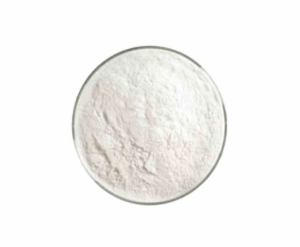Product Categories
--No product--
Hot products
News
The Importance of Phospholipids for Brain Health
Time:2024-08-16
Phospholipids are critical components of cell membranes, and their role in brain health is particularly significant. These molecules are not only fundamental for maintaining the structural integrity of neurons but also play a key role in various aspects of brain function, including cognitive performance, mood regulation, and neuroprotection. This article delves into the importance of phospholipids for brain health, exploring their functions, implications for neurological conditions, and potential therapeutic applications.
1. Phospholipids and Brain Structure
Phospholipids are integral to the structure and function of brain cells. The brain's high lipid content, comprising approximately 60% fat, underscores the significance of phospholipids in maintaining its structural integrity. The most abundant phospholipids in the brain are phosphatidylcholine (PC), phosphatidylethanolamine (PE), and sphingomyelin. These phospholipids contribute to the formation and maintenance of cell membranes, ensuring proper neuronal function.
Phosphatidylcholine (PC): PC is a major component of the neuronal membrane and is essential for membrane fluidity and flexibility. It also plays a role in neurotransmitter synthesis, specifically in the production of acetylcholine, a neurotransmitter crucial for memory and cognitive function.
Phosphatidylethanolamine (PE): PE is involved in various cellular processes, including membrane fusion and cell signaling. It helps maintain the curvature of the membrane, which is important for processes such as synaptic vesicle recycling and neurotransmitter release.
Sphingomyelin: This phospholipid is abundant in the myelin sheath, the protective coating surrounding nerve fibers. Sphingomyelin contributes to the insulation of nerve cells, which is vital for the rapid transmission of electrical signals in the nervous system.
2. Cognitive Function and Memory
The role of phospholipids in cognitive function and memory is well-documented. Phosphatidylcholine, in particular, has been linked to cognitive performance due to its involvement in acetylcholine synthesis. Acetylcholine is essential for learning and memory processes, and deficiencies in this neurotransmitter are associated with cognitive decline.
Research has shown that supplementation with phosphatidylcholine can have beneficial effects on cognitive function. Studies have indicated that phosphatidylcholine supplementation may improve memory performance in older adults and individuals with mild cognitive impairment. This suggests that maintaining adequate levels of phosphatidylcholine is crucial for optimal cognitive health.
3. Mood Regulation and Mental Health
Phospholipids also play a role in mood regulation and mental health. Disruptions in phospholipid metabolism have been associated with mood disorders such as depression and bipolar disorder.
Phosphatidylserine (PS): PS is a phospholipid that is found in high concentrations in brain cell membranes. It has been shown to have potential antidepressant effects. Research indicates that PS supplementation can help reduce symptoms of depression and improve mood. This effect is thought to be related to PS's role in maintaining cellular membrane integrity and supporting neurotransmitter function.
Omega-3 Fatty Acids: Omega-3 fatty acids, which are incorporated into phospholipids in the brain, are known for their anti-inflammatory and neuroprotective properties. They have been linked to improved mood and reduced symptoms of depression. For instance, eicosapentaenoic acid (EPA) and docosahexaenoic acid (DHA) are omega-3 fatty acids that are critical for brain health and function. DHA, in particular, is a major component of neuronal membranes and is associated with improved mood and cognitive function.
4. Neuroprotection and Repair
Phospholipids play a protective role in the brain by contributing to neuroprotection and repair processes. They help shield neurons from oxidative stress and inflammation, both of which are implicated in neurodegenerative diseases.
Neuroinflammation: Chronic inflammation in the brain is a key feature of neurodegenerative diseases such as Alzheimer's and Parkinson's diseases. Phospholipids like phosphatidylinositol (PI) and phosphatidylcholine have been shown to have anti-inflammatory effects. By modulating inflammatory pathways, these phospholipids help protect neurons from damage and promote brain health.
Neurogenesis: The process of neurogenesis, or the formation of new neurons, is crucial for brain repair and plasticity. Phosphatidylcholine and other phospholipids support neurogenesis by maintaining membrane integrity and facilitating cell signaling pathways involved in neuronal growth and differentiation.
5. Implications for Neurological Disorders
Alterations in phospholipid metabolism have been linked to various neurological disorders.
Alzheimer's Disease: In Alzheimer's disease, there is a noticeable decrease in the levels of certain phospholipids, such as phosphatidylcholine, in the brain. This reduction is associated with cognitive decline and memory loss. Research into phospholipid-based therapies is ongoing, with the aim of restoring phospholipid levels and improving cognitive function in affected individuals.
Parkinson's Disease: Similar to Alzheimer's disease, Parkinson's disease is associated with changes in phospholipid metabolism. Sphingolipid dysregulation has been observed in Parkinson's disease, contributing to neurodegeneration. Targeting sphingolipid pathways may offer potential therapeutic strategies for managing Parkinson's disease.
6. Therapeutic Applications
The therapeutic potential of phospholipids is being explored in various areas:
Dietary Supplements: Phospholipid-based supplements, such as phosphatidylcholine and phosphatidylserine, are available as dietary supplements. These supplements are used to support cognitive function, improve memory, and enhance mood.
Phospholipid-based Drug Delivery: Advances in drug delivery systems utilizing phospholipids, such as liposomes, are being developed to enhance the efficacy of medications targeting neurological conditions. These systems can deliver drugs more effectively to the brain while minimizing side effects.
Conclusion
Phospholipids are indispensable for maintaining brain health and function. They play crucial roles in maintaining cell membrane integrity, supporting cognitive performance, regulating mood, and protecting neurons from damage. Understanding the importance of phospholipids in brain health highlights the need for ongoing research into their roles in neurological disorders and the development of targeted therapies. As research progresses, phospholipid-based interventions may offer promising avenues for improving brain health and treating various neurological conditions.
1. Phospholipids and Brain Structure
Phospholipids are integral to the structure and function of brain cells. The brain's high lipid content, comprising approximately 60% fat, underscores the significance of phospholipids in maintaining its structural integrity. The most abundant phospholipids in the brain are phosphatidylcholine (PC), phosphatidylethanolamine (PE), and sphingomyelin. These phospholipids contribute to the formation and maintenance of cell membranes, ensuring proper neuronal function.
Phosphatidylcholine (PC): PC is a major component of the neuronal membrane and is essential for membrane fluidity and flexibility. It also plays a role in neurotransmitter synthesis, specifically in the production of acetylcholine, a neurotransmitter crucial for memory and cognitive function.
Phosphatidylethanolamine (PE): PE is involved in various cellular processes, including membrane fusion and cell signaling. It helps maintain the curvature of the membrane, which is important for processes such as synaptic vesicle recycling and neurotransmitter release.
Sphingomyelin: This phospholipid is abundant in the myelin sheath, the protective coating surrounding nerve fibers. Sphingomyelin contributes to the insulation of nerve cells, which is vital for the rapid transmission of electrical signals in the nervous system.
2. Cognitive Function and Memory
The role of phospholipids in cognitive function and memory is well-documented. Phosphatidylcholine, in particular, has been linked to cognitive performance due to its involvement in acetylcholine synthesis. Acetylcholine is essential for learning and memory processes, and deficiencies in this neurotransmitter are associated with cognitive decline.
Research has shown that supplementation with phosphatidylcholine can have beneficial effects on cognitive function. Studies have indicated that phosphatidylcholine supplementation may improve memory performance in older adults and individuals with mild cognitive impairment. This suggests that maintaining adequate levels of phosphatidylcholine is crucial for optimal cognitive health.
3. Mood Regulation and Mental Health
Phospholipids also play a role in mood regulation and mental health. Disruptions in phospholipid metabolism have been associated with mood disorders such as depression and bipolar disorder.
Phosphatidylserine (PS): PS is a phospholipid that is found in high concentrations in brain cell membranes. It has been shown to have potential antidepressant effects. Research indicates that PS supplementation can help reduce symptoms of depression and improve mood. This effect is thought to be related to PS's role in maintaining cellular membrane integrity and supporting neurotransmitter function.
Omega-3 Fatty Acids: Omega-3 fatty acids, which are incorporated into phospholipids in the brain, are known for their anti-inflammatory and neuroprotective properties. They have been linked to improved mood and reduced symptoms of depression. For instance, eicosapentaenoic acid (EPA) and docosahexaenoic acid (DHA) are omega-3 fatty acids that are critical for brain health and function. DHA, in particular, is a major component of neuronal membranes and is associated with improved mood and cognitive function.
4. Neuroprotection and Repair
Phospholipids play a protective role in the brain by contributing to neuroprotection and repair processes. They help shield neurons from oxidative stress and inflammation, both of which are implicated in neurodegenerative diseases.
Neuroinflammation: Chronic inflammation in the brain is a key feature of neurodegenerative diseases such as Alzheimer's and Parkinson's diseases. Phospholipids like phosphatidylinositol (PI) and phosphatidylcholine have been shown to have anti-inflammatory effects. By modulating inflammatory pathways, these phospholipids help protect neurons from damage and promote brain health.
Neurogenesis: The process of neurogenesis, or the formation of new neurons, is crucial for brain repair and plasticity. Phosphatidylcholine and other phospholipids support neurogenesis by maintaining membrane integrity and facilitating cell signaling pathways involved in neuronal growth and differentiation.
5. Implications for Neurological Disorders
Alterations in phospholipid metabolism have been linked to various neurological disorders.
Alzheimer's Disease: In Alzheimer's disease, there is a noticeable decrease in the levels of certain phospholipids, such as phosphatidylcholine, in the brain. This reduction is associated with cognitive decline and memory loss. Research into phospholipid-based therapies is ongoing, with the aim of restoring phospholipid levels and improving cognitive function in affected individuals.
Parkinson's Disease: Similar to Alzheimer's disease, Parkinson's disease is associated with changes in phospholipid metabolism. Sphingolipid dysregulation has been observed in Parkinson's disease, contributing to neurodegeneration. Targeting sphingolipid pathways may offer potential therapeutic strategies for managing Parkinson's disease.
6. Therapeutic Applications
The therapeutic potential of phospholipids is being explored in various areas:
Dietary Supplements: Phospholipid-based supplements, such as phosphatidylcholine and phosphatidylserine, are available as dietary supplements. These supplements are used to support cognitive function, improve memory, and enhance mood.
Phospholipid-based Drug Delivery: Advances in drug delivery systems utilizing phospholipids, such as liposomes, are being developed to enhance the efficacy of medications targeting neurological conditions. These systems can deliver drugs more effectively to the brain while minimizing side effects.
Conclusion
Phospholipids are indispensable for maintaining brain health and function. They play crucial roles in maintaining cell membrane integrity, supporting cognitive performance, regulating mood, and protecting neurons from damage. Understanding the importance of phospholipids in brain health highlights the need for ongoing research into their roles in neurological disorders and the development of targeted therapies. As research progresses, phospholipid-based interventions may offer promising avenues for improving brain health and treating various neurological conditions.


 CN
CN






